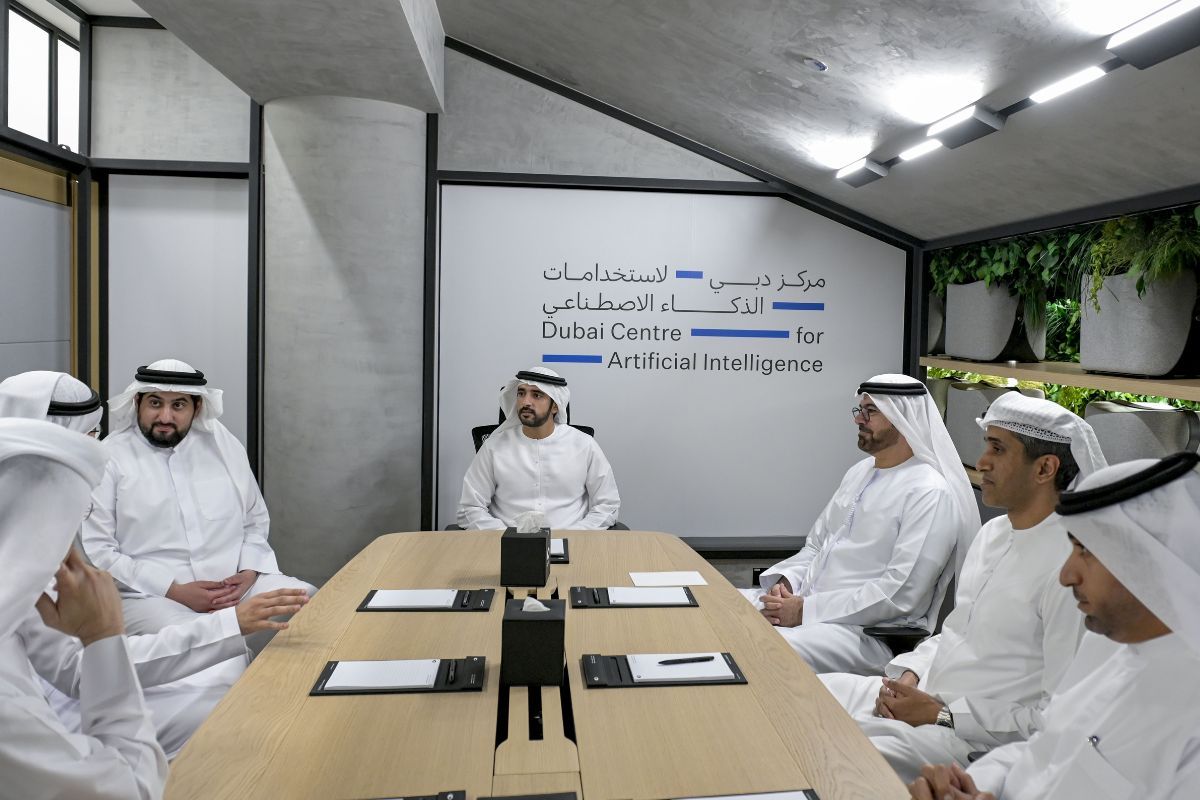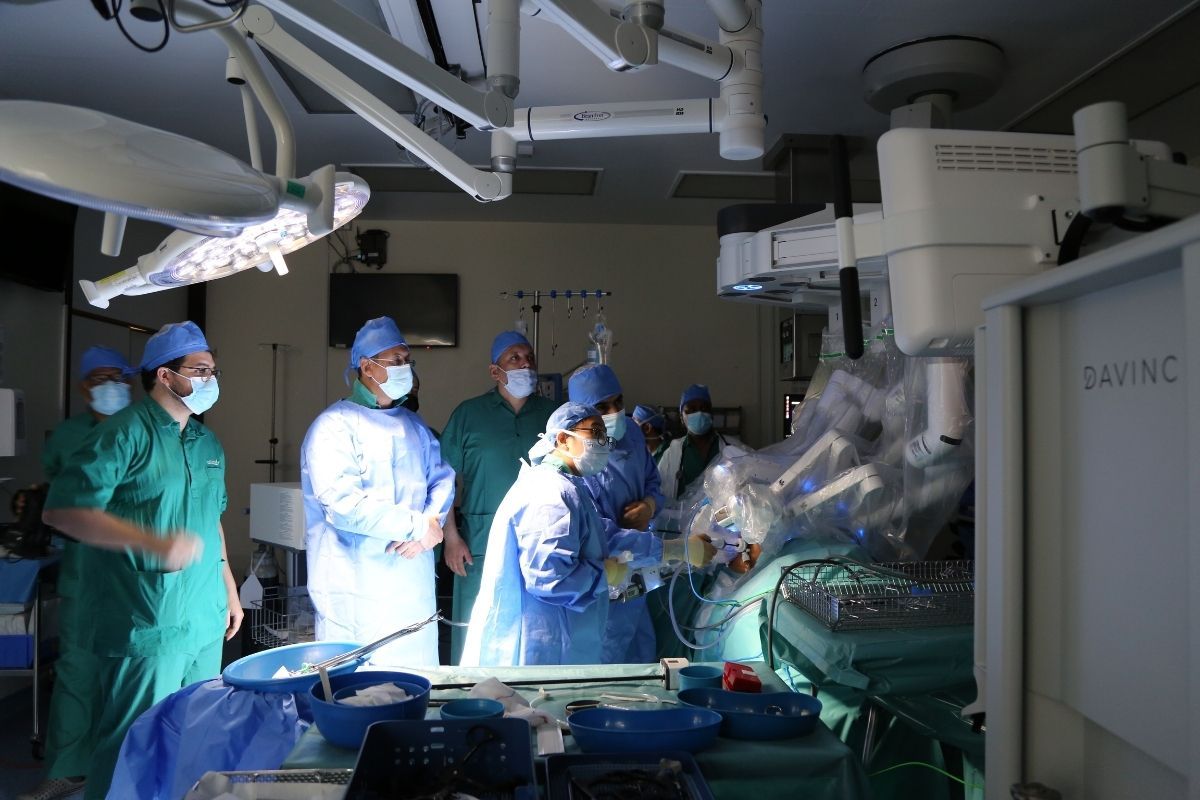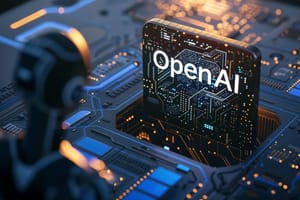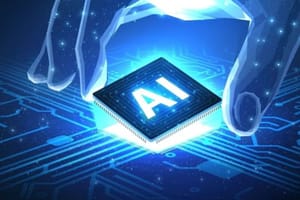Artificial intelligence (AI) has emerged as a game-changing technology across various industries, and healthcare too is no exception. With its ability to evaluate huge quantities of data, recognize patterns, and deliver accurate predictions, AI has opened new opportunities to enhance patient care, improving diagnostic accuracy, optimizing treatment plans, and revolutionizing the overall healthcare landscape. It has changed the way we now diagnose, treat, and monitor patients. By leveraging Artificial Intelligence, healthcare systems can become smarter, faster, and more efficient in providing treatment to millions of people worldwide. AI in healthcare promises to be a game changer, from uncovering new cancer treatments to enhancing patient experiences, paving the way for a future in which patients receive better care and treatment faster and more effectively than ever before.
Let’s explore some of the remarkable ways in which AI is being utilized in healthcare, and the potential it holds for the future of medicine.
But first let’s understand what Artificial Intelligence really means…
What is Artificial Intelligence?

Artificial intelligence (AI) is the intelligence exhibited by machines that can assist in the performance of multiple tasks via sentiment analysis and Natural Language Processing (NLP). This technology enables machines to learn on their own from previous data and information, make sense of it, and use it to do different tasks. AI is a subset of Machine Learning and Deep Learning, each of which has its own set of responsibilities when it comes to equipping machines. AI enables machines to mimic or even exceed the capabilities of the human intellect.
From self-driving cars to the growth of generative AI tools like ChatGPT, AI has quickly become a part of everyday life — and an area in which companies across all industries are investing in.
Role of AI in Healthcare:
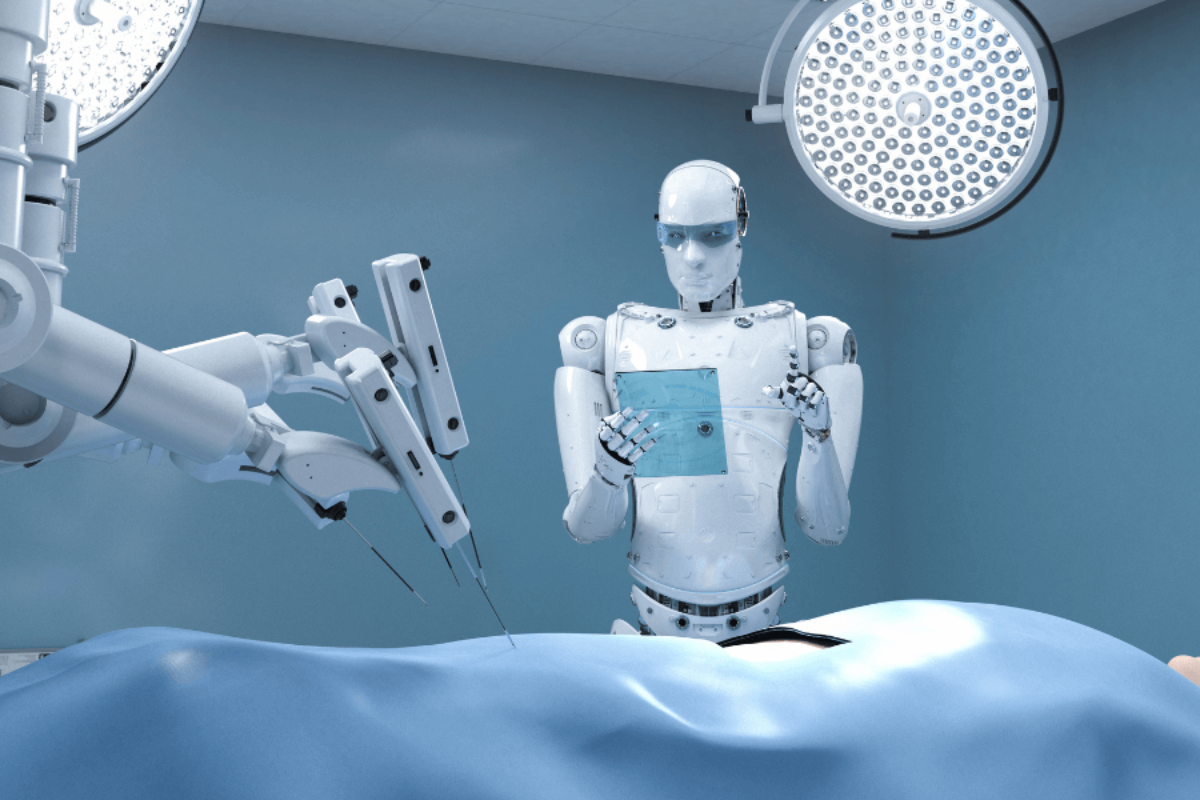
AI is being used to deploy efficient and precise inventions that will help take care of individuals suffering from chronic illnesses such as cancer, and hopefully find a cure for them. It has various advantages over traditional methods of analytics and clinical decision making. AI algorithms increase system precision as they have access to training data, enabling people to gain unprecedented insights into treatment variability, care processes, diagnostics, and patient outcomes.
Now, let’s look at a few of the examples of Artificial Intelligence in healthcare:
- Virtual Health Assistants and Chatbots

AI-powered virtual health assistants and chatbots are transforming patient engagement and support. These advanced systems can respond to patient queries, give medical advice, schedule doctor visits, and send appointment reminders to patients. Virtual Assistants is among the most useful AI applications in healthcare, providing patients with personalized assistance in terms of managing their health and answering their questions. Chatbots can also converse with patients about their ailments and symptoms, lessening the burden on medical workers. This healthcare solution not only engages people, but also provides advanced treatment and results. Virtual assistants and Chatbots can help relieve the pressure on healthcare providers, increase patient education, and improve overall healthcare accessibility, particularly in remote or underserved areas.
2. Medical Imaging and Diagnostics

AI applications improve diagnostic accuracy and speed, making it easier to comprehend images for analysis. Using Deep Learning technologies and programs, these AI systems equip themselves with algorithms that allow for faster reading of complex images such as CT scans, X-rays and MRIs and also helps in detecting anomalies, identifying patterns, and assisting radiologists in diagnosing diseases such as cancer, cardiovascular disorders, and brain abnormalities. The automated picture diagnosis system improves clinicians' performance by offering more accurate disease diagnoses. AI-powered medical imaging technologies enable early detection and intervention, saving lives by reducing human error and speeding up the diagnosis process. It is a critical tool in combating hospital shortages of radiologists and other medical personnel.
3. Remote Patient Monitoring

AI-powered wearable gadgets and remote monitoring systems make it possible to collect and analyze patient health data in real time. These devices can monitor vital signs, activity levels, sleep patterns, and a variety of other parameters. AI systems can then detect changes from the baseline, alerting healthcare providers to potential health risks in real time. Remote patient monitoring, particularly for chronic illnesses, enables proactive intervention, faster diagnosis, and improved disease management.
4. Streamlining Administrative Tasks

AI is also reducing administrative tasks, allowing healthcare practitioners to devote more time to patient care. NLP algorithms allow AI systems to analyze and extract information from medical records, notes, and other healthcare materials. In healthcare settings, automation helps to reduce errors, boost efficiency, and improve overall workflow. Chatbots and virtual assistants powered by AI are also being utilized to manage regular patient enquiries, arrange appointments, and provide basic medical advice, thereby increasing patient involvement and accessibility. Olive, for example, is an AI-powered platform that automates activities such as determining the eligibility of unadjudicated medical claims, transmitting relevant medical data to the appropriate medical providers, and so on.
5. Enhancing Drug Discovery and Development

AI is revolutionizing the drug research and development process, which has historically been noted for its complexity and high cost. Massive datasets can be analyzed by machine learning algorithms to predict the efficacy and safety of possible medication candidates. AI models are capable of simulating molecular interactions, identifying novel drug targets, and optimizing drug formulations. AI has the potential to accelerate the creation of life-saving pharmaceuticals and increase treatment choices for a variety of diseases by expediting the drug discovery pipeline. The unique feature of Artificial Intelligence technology is that it allows healthcare experts to scan pre-existing drugs and redesign them to tackle specific illnesses.
6. Accurate Diagnosis of Diseases

PathAI offers one of the best Machine Learning and Artificial Intelligence tools in healthcare that allows Pathologists to make accurate diagnoses. PathAI reduces errors during the process of cancer diagnosis and offers a range of new techniques for individual medical treatment. With increased accuracy in the diagnosis of cancer patients, most of them can be looked after or be cured at a stage where it does not turn fatal, saving numerous lives.
7. Predictive Analytics

Using machine learning algorithms, AI programs may find trends, detect possible dangers, and anticipate disease outcomes. For instance, AI can analyze electronic health records to identify individuals who are at high risk of acquiring illnesses such as diabetes, heart disease, or sepsis. This enables healthcare providers to intervene early, take preventative measures, and improve patient outcomes for illnesses such as cancer, diabetes, and heart disease. Furthermore, AI can help predict illness outbreaks, allowing authorities to spend resources more effectively and control the spread of infectious diseases. Healthcare providers can create individualized treatment programs using AI's predictive skills, enhancing patient prognosis and quality of life.
AI in Healthcare in Dubai:


Dubai has embraced the use of Artificial Intelligence (AI) in healthcare, owing to its progressive approach to technology and innovation. The city has invested heavily in AI infrastructure and research, establishing itself as a global powerhouse for AI-driven healthcare solutions. The Dubai Health Authority (DHA) has started a number of projects to integrate artificial intelligence (AI) into healthcare services. One notable example is the "Dubai Future Accelerators" program, which encourages cooperation between healthcare providers and AI entrepreneurs in order to build cutting-edge solutions. Dubai is also investing in artificial intelligence-powered diagnostic technologies such as machine learning algorithms for early cancer detection and smart health monitoring gadgets. The city is rapidly promoting collaborations between healthcare providers, researchers, and technology businesses in order to expedite AI adoption and promote cutting-edge healthcare solutions. AI integration in Dubai's healthcare system has led to improved patient outcomes, streamlined operations, and increased patient experiences. With its forward-thinking approach, Dubai is a prime illustration of how AI may positively impact the delivery of healthcare services on a regional and international scale.
Ethical Considerations and Challenges:
While AI has enormous potential in healthcare, ethical issues and challenges must be addressed. These include data privacy and security, patient safety and accuracy, training algorithms to spot trends in medical data, integrating AI with current IT systems, obtaining physician acceptance and trust, and assuring compliance with federal standards. Data privacy is especially crucial since AI systems collect vast amounts of personal health information that, if not handled carefully, could be exploited. When employing AI in healthcare, patient safety and accuracy are also crucial considerations. AI systems must be trained to spot patterns in medical data, comprehend the relationships between various diagnoses and therapies, and make correct recommendations suited to each unique patient. Finally, getting the acceptance and trust of medical providers is important for the successful implementation of AI in healthcare. Physicians must have confidence that the AI system is reliable and will not lead them astray. This means that transparency is crucial - physicians should be able to see how the AI system makes decisions in order to ensure that it is using accurate, up-to-date medical research.
What The Future Holds…
The future of Artificial intelligence in healthcare is undeniably bright and full of possibilities for further innovation. As we proceed towards a more connected digital world, integrating AI in the healthcare industry will become a significant asset that has the potential to transform how doctors treat patients and provide care. With such enormous potential, it is evident that implementing Artificial Intelligence in healthcare has the promise of a future filled with innovations, improved health outcomes, and improved patient experiences.
Also Read:

